Recent Blog Posts
Are There Exceptions to the Automatic Stay During a Bankruptcy Case?
 One of the benefits of filing for bankruptcy is that doing so places an automatic stay on collection actions by creditors. This means that creditors will be prohibited from making any attempts to collect debts while the bankruptcy case is ongoing, including contacting a debtor through phone calls, letters, garnishing their wages, or foreclosing on a person’s home. The automatic stay gives a person the opportunity to assess their financial situation and determine their options during the bankruptcy process without the requirement to repay certain debts during this time. However, there are certain types of exceptions to the automatic stay, and a person will need to understand how these will apply in their case.
One of the benefits of filing for bankruptcy is that doing so places an automatic stay on collection actions by creditors. This means that creditors will be prohibited from making any attempts to collect debts while the bankruptcy case is ongoing, including contacting a debtor through phone calls, letters, garnishing their wages, or foreclosing on a person’s home. The automatic stay gives a person the opportunity to assess their financial situation and determine their options during the bankruptcy process without the requirement to repay certain debts during this time. However, there are certain types of exceptions to the automatic stay, and a person will need to understand how these will apply in their case.
Issues That Are Not Affected by the Automatic Stay
The following types of actions are not covered by the automatic stay in a bankruptcy case:
When Can I Receive a Hardship Discharge in a Chapter 13 Bankruptcy?
 Debtors have multiple options for addressing debts through bankruptcy. For those who have secured debts such as a home mortgage or other loans where they wish to maintain ownership of the collateral, or in cases where a family’s income exceeds a certain threshold, Chapter 13 bankruptcy may be the best option. In these cases, the debtor will propose a repayment plan in which they will put their disposable income toward paying off as much of their debts as possible over a period of three or five years, and after completing all payments in the plan, they will receive a discharge of the unsecured debts that are remaining. However, debtors may be concerned about what will happen if they encounter financial difficulties that affect their ability to make these payments. In these situations, a debtor may qualify for a hardship discharge.
Debtors have multiple options for addressing debts through bankruptcy. For those who have secured debts such as a home mortgage or other loans where they wish to maintain ownership of the collateral, or in cases where a family’s income exceeds a certain threshold, Chapter 13 bankruptcy may be the best option. In these cases, the debtor will propose a repayment plan in which they will put their disposable income toward paying off as much of their debts as possible over a period of three or five years, and after completing all payments in the plan, they will receive a discharge of the unsecured debts that are remaining. However, debtors may be concerned about what will happen if they encounter financial difficulties that affect their ability to make these payments. In these situations, a debtor may qualify for a hardship discharge.
How Is a Chapter 13 Bankruptcy Repayment Plan Created?
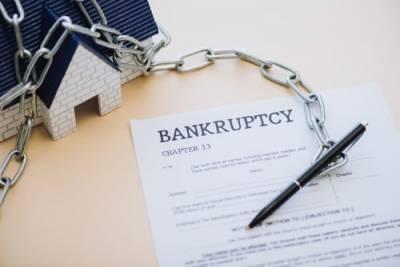 If you have significant debts that have led to financial struggles for your family, you may be considering bankruptcy. If you want to be able to maintain ownership of your home, or if you want to avoid the repossession of a vehicle or other property, Chapter 13 bankruptcy may be the best option for you. In this type of bankruptcy, certain debts are grouped together in a repayment plan that will last either three or five years. After completing this plan, any unsecured debts that remain will be eliminated. As you prepare to file for bankruptcy, you will want to understand how your repayment plan will be calculated.
If you have significant debts that have led to financial struggles for your family, you may be considering bankruptcy. If you want to be able to maintain ownership of your home, or if you want to avoid the repossession of a vehicle or other property, Chapter 13 bankruptcy may be the best option for you. In this type of bankruptcy, certain debts are grouped together in a repayment plan that will last either three or five years. After completing this plan, any unsecured debts that remain will be eliminated. As you prepare to file for bankruptcy, you will want to understand how your repayment plan will be calculated.
Creating a Repayment Plan in a Chapter 13 Bankruptcy
When you file for bankruptcy, you will be required to provide documentation detailing information such as a list of all of your creditors, the total income you earn and how often you are paid, an inventory of all of your assets, and details about your regular expenses. This information will be used to determine your disposable income, or the amount that is available to pay debts after covering your living expenses.
How Are Non-Judicial Foreclosures Handled in Texas?
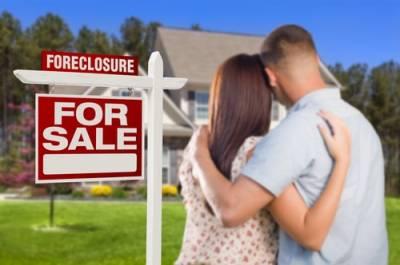 Families that experience financial difficulties may struggle to pay certain bills and expenses. In some cases, financial issues may cause a family to get behind on mortgage payments, and a lender may begin foreclosure proceedings. In Texas, lenders will usually use non-judicial foreclosure, meaning that a foreclosure can be completed without the need to go to court and receive approval from a judge. Homeowners will want to understand the procedures followed during this type of foreclosure, and by working with an attorney, they may be able to take steps to prevent the loss of their home.
Families that experience financial difficulties may struggle to pay certain bills and expenses. In some cases, financial issues may cause a family to get behind on mortgage payments, and a lender may begin foreclosure proceedings. In Texas, lenders will usually use non-judicial foreclosure, meaning that a foreclosure can be completed without the need to go to court and receive approval from a judge. Homeowners will want to understand the procedures followed during this type of foreclosure, and by working with an attorney, they may be able to take steps to prevent the loss of their home.
The Non-Judicial Foreclosure Process
Most mortgages in Texas will use a deed of trust involving three parties: the lender, the borrower, and the trustee. The trustee will hold the title to the property, and the deed of trust will usually include a “power of sale” clause that allows the trustee to sell the home if the homeowner defaults on mortgage payments. This clause allows for a non-judicial foreclosure.
Is a Short Sale of My Home a Good Alternative to Bankruptcy?
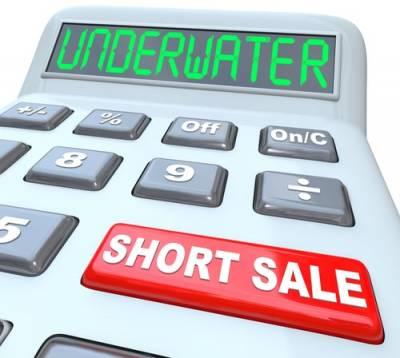 Homeowners who have experienced financial difficulties may struggle to make payments on multiple debts, including their mortgage. Those who have missed payments may be facing the threat of foreclosure, as well as harassment from other creditors seeking to recover payment for the debts that are owed. In this type of situation, a homeowner may be considering bankruptcy, but they should also be aware of other alternatives that may be available, including completing a short sale of their home.
Homeowners who have experienced financial difficulties may struggle to make payments on multiple debts, including their mortgage. Those who have missed payments may be facing the threat of foreclosure, as well as harassment from other creditors seeking to recover payment for the debts that are owed. In this type of situation, a homeowner may be considering bankruptcy, but they should also be aware of other alternatives that may be available, including completing a short sale of their home.
Benefits and Drawbacks of a Short Sale
The real estate market often experiences fluctuations and a home may lose value for a variety of reasons. When a home is “underwater,” meaning that more is owed on the mortgage than the home is worth, the homeowner may be able to complete a short sale. In this type of sale, the home will be sold for its current market value, and the borrower may be released from the requirement to pay the additional amount owed on the mortgage.
New Laws and Court Rulings May Affect Bankruptcy and Student Loans
 While borrowers have several options for receiving relief from their outstanding debts, student loans can often present difficulties, and a person may worry that they will be required to pay these debts, regardless of their ability to do so. In many cases, student loans cannot be discharged through bankruptcy unless a person is able to show that they have experienced “undue hardship.” However, this may be changing based on the potential passage of a new law, as well as a recent court ruling.
While borrowers have several options for receiving relief from their outstanding debts, student loans can often present difficulties, and a person may worry that they will be required to pay these debts, regardless of their ability to do so. In many cases, student loans cannot be discharged through bankruptcy unless a person is able to show that they have experienced “undue hardship.” However, this may be changing based on the potential passage of a new law, as well as a recent court ruling.
Bill Would Restore the Ability to Discharge Student Loans Through Bankruptcy
Prior to 1998, borrowers were allowed to file for bankruptcy and discharge federal student loans that were at least 10 years old, but following a change in the law, these loans can now only be discharged based on undue hardship. Currently, most people are unable to eliminate student loans that were obtained through government programs or backed by the federal government unless they can prove that repaying these loans would cause extreme financial difficulties that would affect their ability to provide for themselves. Meeting these standards can be difficult, and since few borrowers are able to discharge their student loans, many people are required to repay these debts throughout their entire lifetime.
How Loan Modifications Can Provide an Alternative to Bankruptcy
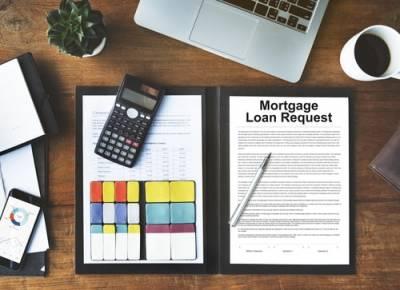 There are many reasons why homeowners may struggle to make ongoing mortgage payments while also covering other necessary expenses. This has been a major concern during the COVID-19 pandemic, which has led many people to lose their jobs or suffer other financial setbacks. While bankruptcy may be an option for some who are unable to repay their debts, homeowners should also be aware of the various alternatives to bankruptcy that may be available. These include requesting loan modifications that will allow them to maintain ownership of their homes while ensuring that they will be able to make affordable payments.
There are many reasons why homeowners may struggle to make ongoing mortgage payments while also covering other necessary expenses. This has been a major concern during the COVID-19 pandemic, which has led many people to lose their jobs or suffer other financial setbacks. While bankruptcy may be an option for some who are unable to repay their debts, homeowners should also be aware of the various alternatives to bankruptcy that may be available. These include requesting loan modifications that will allow them to maintain ownership of their homes while ensuring that they will be able to make affordable payments.
Types of Loan Modifications That May Be Available
Debtors who have experienced financial hardship, such as the loss of a job or health issues that have led to increased medical expenses, may be able to qualify for a loan modification. The eligibility for a modification and the types of modifications that may be available will vary depending on the lender. Typically, a debtor can apply for a loan modification if they have missed one or more payments. Potential loan modifications may include:
What Options Do Homeowners Have to Avoid Foreclosure Due to COVID-19?
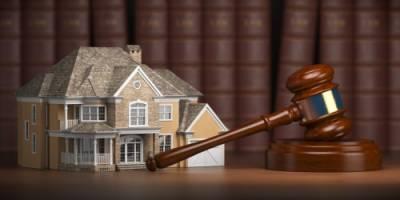 For over a year, people throughout the United States have experienced multiple types of financial difficulties. Many families have had to deal with health issues related to COVID-19, resulting in large medical bills and affecting people’s ability to work and earn an income. Others have suffered job losses or decreases in work hours and income due to pandemic-related business closures. These financial problems have caused some families to be unable to cover their ongoing expenses, including mortgage payments. While many homeowners have been protected from foreclosure by a moratorium put in place by the federal government, this moratorium is coming to an end on July 31, 2021. However, federal agencies have implemented new rules and procedures that may help homeowners avoid the loss of their homes.
For over a year, people throughout the United States have experienced multiple types of financial difficulties. Many families have had to deal with health issues related to COVID-19, resulting in large medical bills and affecting people’s ability to work and earn an income. Others have suffered job losses or decreases in work hours and income due to pandemic-related business closures. These financial problems have caused some families to be unable to cover their ongoing expenses, including mortgage payments. While many homeowners have been protected from foreclosure by a moratorium put in place by the federal government, this moratorium is coming to an end on July 31, 2021. However, federal agencies have implemented new rules and procedures that may help homeowners avoid the loss of their homes.
Lenders Required to Provide Borrowers With Options to Avoid Foreclosure
Am I Eligible for Cramdowns or Lien Stripping in a Chapter 13 Bankruptcy?
 Anyone who struggles with significant debts will want to understand the options that may allow them to reduce or eliminate what they owe. Chapter 7 bankruptcy is often the ideal option for those who do not own significant assets since it can be completed quickly and will allow a person’s unsecured debts (such as credit card balances) to be discharged. However, those who have secured debts (such as a mortgage or car loan) or who own significant assets may need to use Chapter 13 bankruptcy. In these cases, debtors may have options for reducing the debts they owe through methods known as “cramdowns” and “lien stripping.”
Anyone who struggles with significant debts will want to understand the options that may allow them to reduce or eliminate what they owe. Chapter 7 bankruptcy is often the ideal option for those who do not own significant assets since it can be completed quickly and will allow a person’s unsecured debts (such as credit card balances) to be discharged. However, those who have secured debts (such as a mortgage or car loan) or who own significant assets may need to use Chapter 13 bankruptcy. In these cases, debtors may have options for reducing the debts they owe through methods known as “cramdowns” and “lien stripping.”
Addressing Secured and Unsecured Debts in a Chapter 13 Bankruptcy
In a Chapter 13 bankruptcy, a person’s unsecured debts will be consolidated into a repayment plan. The debtor will make payments on this plan over a period of three to five years, and once all payments in the plan have been made, the remaining unsecured debts included in the plan will be discharged. Typically, a person will need to make ongoing payments on secured debts along with the payments made during their Chapter 13 repayment plan.
What Assets Are Exempt From Liquidation in a Chapter 7 Bankruptcy?
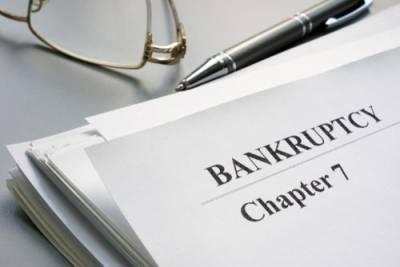 Debt can be a difficult issue for anyone to deal with. Fortunately, bankruptcy can provide relief for those who find themselves unable to pay the debts they owe while also covering their ongoing expenses. In many cases, Chapter 7 bankruptcy is the preferable option, since it will allow most debts to be eliminated quickly and easily. This form of debt relief is referred to as a “liquidation bankruptcy” since the bankruptcy trustee may seize some of a debtor’s assets and sell them to pay off the debts owed to creditors. However, certain types of assets are exempt from liquidation. By understanding what exemptions apply to them, debtors can determine whether Chapter 7 bankruptcy is their best option or whether they should choose a Chapter 13 bankruptcy instead.
Debt can be a difficult issue for anyone to deal with. Fortunately, bankruptcy can provide relief for those who find themselves unable to pay the debts they owe while also covering their ongoing expenses. In many cases, Chapter 7 bankruptcy is the preferable option, since it will allow most debts to be eliminated quickly and easily. This form of debt relief is referred to as a “liquidation bankruptcy” since the bankruptcy trustee may seize some of a debtor’s assets and sell them to pay off the debts owed to creditors. However, certain types of assets are exempt from liquidation. By understanding what exemptions apply to them, debtors can determine whether Chapter 7 bankruptcy is their best option or whether they should choose a Chapter 13 bankruptcy instead.






